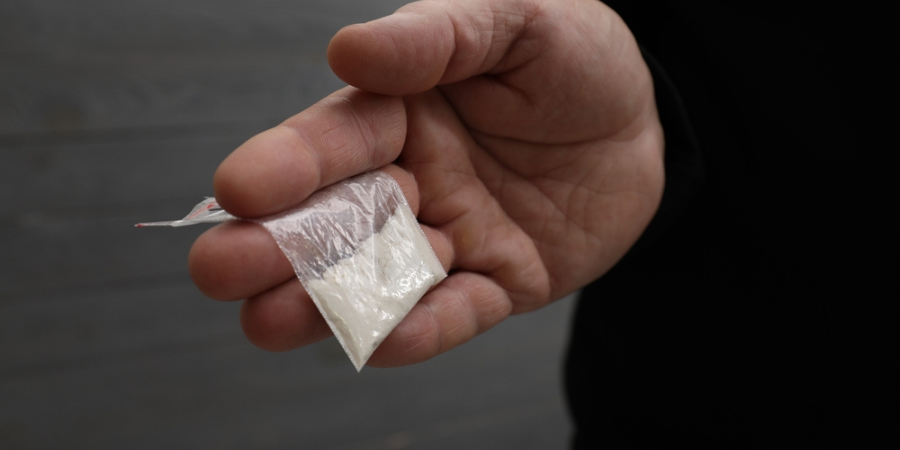
Written by:

Medically Reviewed by:
Last Updated:
February 25th, 2025
Ketamine Addiction | Signs, Symptoms and Effects
Imagine finding yourself lost in a bewildering labyrinth, where the walls are constantly shifting and your sense of reality is distorted. Ketamine addiction can feel like this disorienting maze, ensnaring those who succumb to its deceptive allure. Defined as the compulsive use of ketamine despite the harm it is doing to your life, ketamine addiction can seem like an impossible situation to escape. However, there is professional help available that can aid you in navigating the complexities of ketamine abuse, guiding you towards a path of healing and self-discovery.
What is ketamine?
Ketamine is a dissociative anaesthetic that was first developed in the 1960s as a replacement for the more dangerous anaesthetic, phencyclidine (PCP). On a chemical level, ketamine works by blocking N-methyl-D-aspartate (NMDA) receptors in the brain, which are responsible for transmitting electrical signals between neurons. This blockade results in a disconnection between various parts of the brain and leads to the drug’s signature dissociative and hallucinogenic effects.
In medical settings, ketamine is used as an anaesthetic for both humans and animals, particularly in situations where the respiratory function needs to be preserved. However, its use has expanded beyond the medical sphere, with many individuals seeking out ketamine for its recreational effects. These can include feelings of euphoria, vivid hallucinations and a sense of detachment from one’s surroundings and self.
Ketamine fact sheet
-
- In the UK, ketamine is considered a Class B drug, making it unlawful to possess, supply or manufacture.
Street names for ketamine include Special K, Vitamin K, Horse and simply K.
Ketamine has been used as a date rape drug due to its ability to induce memory loss and increased compliance in victims.
Some research suggests that ketamine may have potential therapeutic benefits for conditions like depression.
Illicitly-sourced ketamine is often adulterated with other substances, leading to unpredictable and potentially dangerous effects when consumed.
How do people become addicted to ketamine?
To understand how ketamine addiction develops, illustration, let’s consider John’s story:
Stage 1: Initial ketamine use…
John’s first experience with ketamine occurred at a club when his friend offered him the drug. Intrigued by its reputation as a party drug and feeling the pressure to fit in, John decided to give it a try. He found that ketamine produced a sense of euphoria, relaxation and detachment from reality that he enjoyed.
Stage 2: Regular ketamine use…
Over time, John’s sporadic use of ketamine became more frequent. He started using the drug at social gatherings, parties and clubs, associating it with having a good time. This regular use began to rewire John’s brain, making it crave the pleasurable sensations induced by ketamine.
Stage 3: Ketamine tolerance…
As John’s ketamine use became more frequent, his body developed a tolerance to the drug. He started to notice that the same dose of ketamine no longer produced the desired effects and he needed to increase the amount he took to achieve the same level of euphoria and dissociation. This escalation in dosage put John at a greater risk of overdose and other health complications.
Stage 4: Ketamine dependence…
John’s increased ketamine consumption eventually led to physical and psychological dependence. He experienced withdrawal symptoms when he tried to cut back or stop using ketamine, making it difficult for him to function without the drug. The dependence also affected his daily life, causing him to prioritise ketamine use over responsibilities, relationships and personal well-being.
Stage 5: Ketamine addiction…
Finally, John’s dependence on ketamine spiralled into a full-blown addiction. He became trapped in a cycle that negatively impacted his physical, mental and social well-being. Despite experiencing adverse consequences from his ketamine use, John found it impossible to stop or control his drug consumption, the classic definition of addiction.
Do I have a ketamine addiction?
Recognising the signs of ketamine addiction is crucial for seeking help as soon as possible. However, ketamine addiction can deceive individuals into denial, making it difficult to acknowledge that there is a problem.
To help identify the signs of ketamine addiction, ask yourself the following questions:
- Do I use ketamine more frequently or in higher doses than intended?
- Have I experienced negative consequences from my ketamine use but continue to use it anyway?
- Do I spend a significant amount of time and resources obtaining, using, or recovering from ketamine?
- Have I developed a tolerance to ketamine, requiring more of the drug to achieve the desired effects?
- Have I experienced withdrawal symptoms when attempting to reduce or stop ketamine use?
- Has my ketamine use negatively impacted my relationships, work, or education?
- Do I feel a strong craving or urge to use ketamine?
- Have I unsuccessfully tried to cut down or control my ketamine use?
If you answered yes to any of these questions, it may be time to seek professional help for ketamine addiction.
What are the underlying causes of ketamine addiction?
There is no single cause for ketamine addiction; rather, it is the result of a complex interplay of factors. Some common risk factors for developing a ketamine addiction include:
- Genetic predisposition: Individuals with a family history of substance abuse may be more susceptible to developing an addiction to ketamine.
- Environmental influences: Exposure to high-stress environments, trauma or peer pressure can increase the likelihood of ketamine addiction.
- Co-occurring mental health disorders: Individuals with pre-existing mental health conditions, such as depression or anxiety, may be more vulnerable to ketamine addiction as they may use the drug as a form of self-medication.
- Early exposure: Initiating drug use at a young age can increase the risk of developing a drug addiction later in life, as the brain is still developing and may be more susceptible to the effects of substances like ketamine.
- Personality traits: Certain personality traits, such as impulsivity, sensation-seeking and a propensity for risk-taking may make an individual more prone to experimenting with drugs like ketamine and ultimately developing an addiction.
- Social factors: A lack of social support, poor coping skills or unstable relationships can contribute to the development of ketamine addiction as individuals may use ketamine to cope with life stressors.
- Substance availability: Easy access to ketamine or frequent exposure to environments where the drug is commonly used, such as clubs or music festivals, can increase the risk of developing a ketamine addiction.
Ketamine abuse and addiction in the UK
Ketamine abuse can lead to a range of health issues, including:
- Bladder and kidney damage: Chronic ketamine use can result in a condition called ketamine-induced cystitis, which causes severe inflammation of the bladder and can lead to irreversible damage to the bladder and kidneys.
- Cognitive impairment: Long-term ketamine abuse can lead to memory loss, difficulty concentrating and a decline in overall cognitive function.
- Cardiovascular issues: Ketamine can cause an increase in heart rate and blood pressure, which can lead to long-term cardiovascular problems.
- Respiratory issues: Although ketamine is less likely to cause respiratory depression than other anaesthetics, high doses or prolonged use can still lead to respiratory issues and even respiratory failure in severe cases.
- Increased risk of accidents and injury: The dissociative effects of ketamine can impair coordination, balance, and judgement, increasing the likelihood of accidents and injuries.
Mixing ketamine with other substances, such as alcohol, benzodiazepines or stimulants can exacerbate these negative effects and increase the risk of overdose and other serious health complications.
What is a “k-hole”?
A “k-hole” is a term used to describe the deep dissociative state that can occur when an individual takes a high dose of ketamine. This state is characterised by intense hallucinations, a profound sense of detachment from one’s body, and a perceived disconnection from reality. While some users may find the k-hole experience pleasurable, it can also be terrifying and disorienting. Moreover, the k-hole state can put individuals at a heightened risk of accidents and injuries, as well as leave them vulnerable to exploitation or harm from others.
Other impacts of ketamine addiction
Ketamine addiction can also have far-reaching consequences on various aspects of an individual’s life, including:
- Relationships: Addiction can strain relationships with friends, family and romantic partners, often leading to isolation and loneliness.
- Jobs and career: Ketamine addiction can negatively impact job performance, leading to job loss or difficulty finding new employment.
- Education: Students struggling with ketamine addiction may experience declining academic performance or disengagement from their studies.
- Legal issues: As a Class B drug in the UK, possession or distribution of ketamine can lead to criminal charges, fines and imprisonment.
- Financial problems: The cost of sustaining a ketamine addiction can lead to significant financial strain and debt.
What does ketamine addiction recovery involve?
Ketamine addiction recovery typically involves a combination of:
- Ketamine detox: This process helps you safely withdraw from ketamine under medical supervision and break physical dependence.
- Ketamine rehab: This stage focuses on addressing the psychological aspects of ketamine addiction through counselling, therapy and aftercare.
Recovery Lighthouse provides all these stages at our inpatient centre to help give you the best chance of recovery.
What to do next
If you or someone you care about is struggling with ketamine addiction, Recovery Lighthouse is here to help. Our comprehensive ketamine addiction programmes offer a supportive and non-judgmental environment where you can make the necessary changes in your life. Reach out to us today to take the first step toward a brighter, healthier future.






